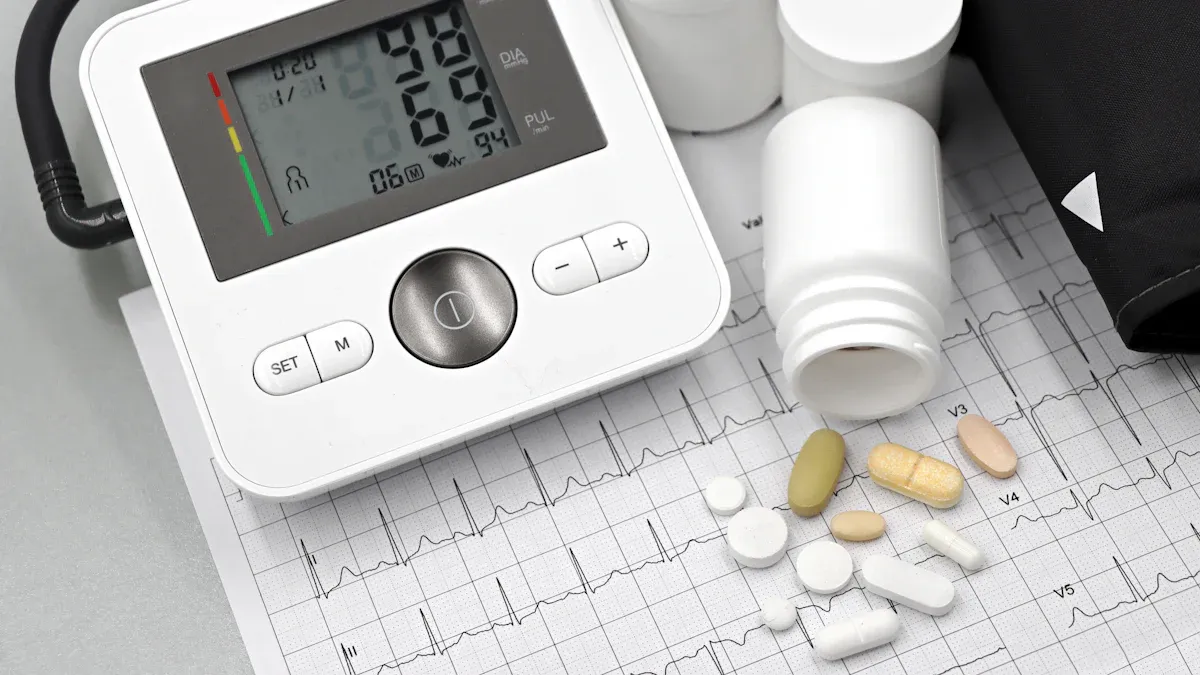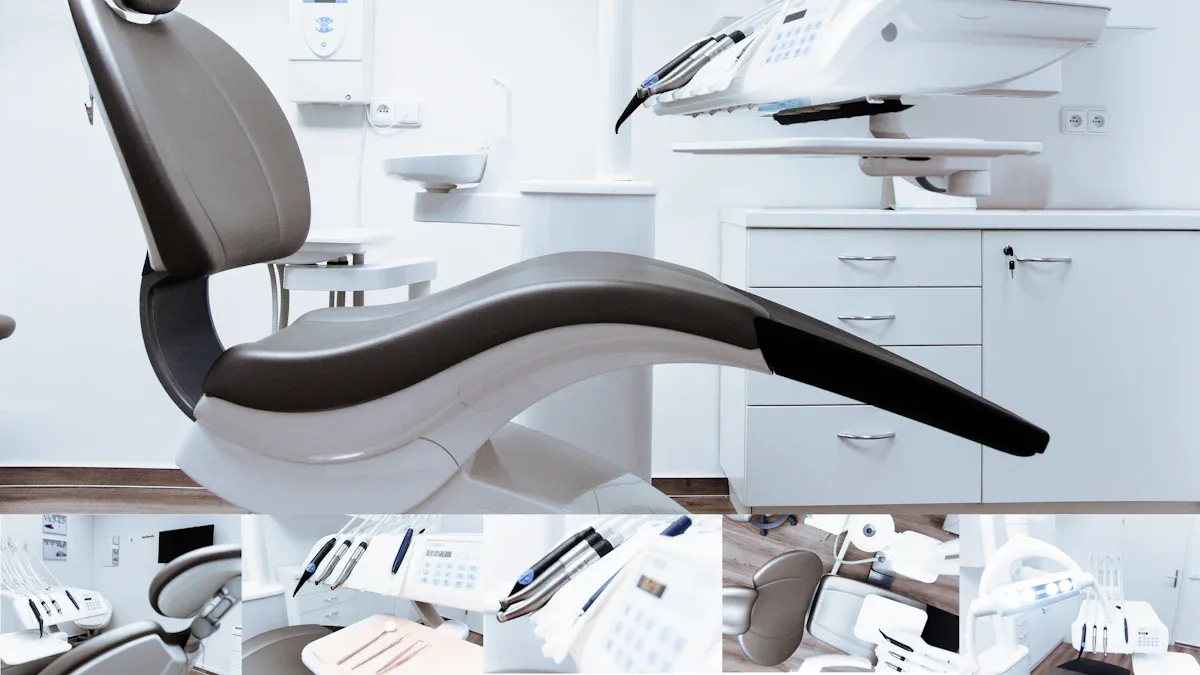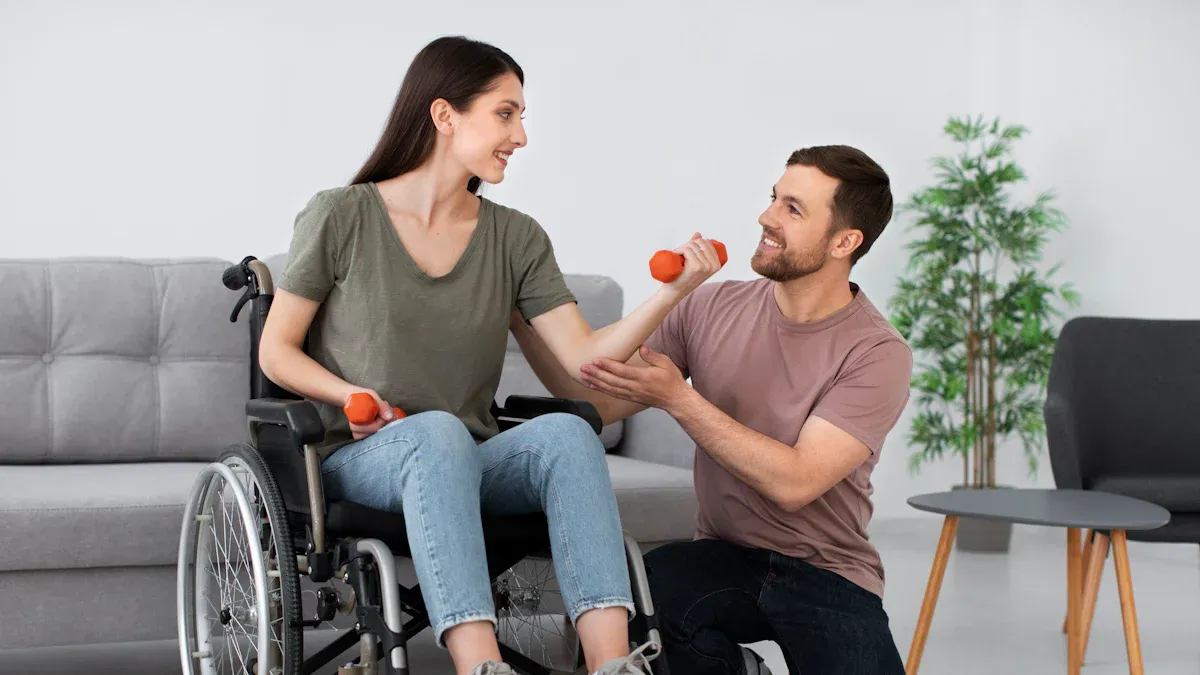Exploring the Benefits of Durable Medical Equipment for Home Care

Have you ever helped a loved one at home and wished things felt safer or easier? Many families face daily challenges when caring for someone with health needs. Everyone wants to feel safe, comfortable, and independent in their own space. With the right durable medical equipment, you can create a home that supports healing and makes life better for both you and your loved ones.
Key Takeaways
Durable medical equipment (DME) enhances safety and comfort at home, allowing for easier daily routines.
Using DME promotes independence, enabling individuals to perform tasks without constant assistance.
DME reduces the burden on caregivers, making it easier to provide support and care.
Owning DME helps manage chronic conditions effectively, leading to better health outcomes and fewer hospital visits.
Insurance often covers DME costs, so check your plan to maximize financial support for necessary equipment.
What Is Durable Medical Equipment?

You might wonder what makes medical equipment "durable." Durable medical equipment means tools and devices that help you manage health needs at home. These items last a long time and stand up to daily use. You use them to make life safer and easier when you need care outside a hospital. Durable medical equipment supports you with daily tasks, helps you move around, and keeps you comfortable.
Key Features
Durable medical equipment has some important qualities.
It is strong and built to last.
You can use it over and over without it breaking down.
Most medical equipment is easy to clean and maintain.
You use it for medical reasons, not just for comfort.
Insurance often covers the cost if you need it for health reasons.
Tip: When you look for medical equipment, check if it fits your space and needs. You want something that helps you every day.
Common Types
You see many kinds of medical equipment in homes. Here are some examples:
Type | What It Does |
|---|---|
Wheelchairs | Helps you move if walking is hard |
Walkers | Gives support while you walk |
Hospital Beds | Makes sleeping and care easier |
Home Monitoring | Tracks health signs like heart rate |
Mobility Aids | Supports movement and safety |
Therapy Equipment | Helps with exercises and recovery |
Oxygen Machines | Provides extra oxygen if needed |
Shower Chairs | Makes bathing safer |
You find that accessibility and availability of dme can change how you live at home. When you have the right medical equipment, you feel more confident and independent. You do not need to rely on others for every task. Medical equipment like therapy equipment and mobility aids can help you recover faster and stay safe. If you choose the right medical equipment, you make your home a better place for care.
Benefits of Owning Home Medical Equipment

Improving Quality of Life
You want your home to feel safe and comfortable. Durable medical equipment can help you reach that goal. When you have the right medical supplies, you can move around your house with less worry. Safety devices like grab bars, shower chairs, and hospital beds make daily routines easier. You can sleep better, bathe safely, and enjoy your favorite activities. These changes lead to improving quality of life for you and your loved ones.
Many people notice that medical supplies help them feel more confident. You do not have to struggle with simple tasks. Instead, you can focus on what matters most—spending time with family, enjoying hobbies, or just relaxing at home. The benefits of owning home medical equipment go beyond comfort. They help you live life on your terms.
Supporting Independence
You value your freedom. Durable medical equipment gives you the tools to stay independent. With items like walkers, wheelchairs, and other safety devices, you can move around your home and community without always needing help. This sense of control boosts your mood and keeps you active.
Did you know? Studies show that durable medical equipment is crucial for patients to maintain independence in their homes and communities. When you have easy access to the right medical supplies, you can avoid delays that might limit your independence or patient safety.
Here are some ways DME helps with supporting independence:
Lets you do more things on your own
Reduces the need for constant help from others
Makes it easier to leave the house and join activities
When you use medical supplies that fit your needs, you feel more in charge of your life. The benefits of owning home medical equipment include more freedom and better self-esteem.
Reducing Caregiver Burden
Caring for someone at home can be hard work. Durable medical equipment lightens the load for caregivers. Safety devices like transfer benches, bed rails, and lift chairs make it easier to help someone move or get dressed. Medical supplies such as in-home monitors and medication organizers let you keep track of health needs without stress.
When you have the right equipment, you spend less time worrying about accidents. You can focus on giving support and sharing good moments. The benefits of owning home medical equipment mean both you and your caregiver can enjoy more peace of mind.
Managing Chronic Conditions
Living with a long-term illness can feel overwhelming. Durable medical equipment helps you manage your health at home. Devices like blood pressure monitors, glucose meters, and oxygen machines let you monitor chronic disease and respond quickly to changes. This leads to better management of chronic conditions and fewer trips to the hospital.
Medical supplies also help you stick to your treatment plan. You can check your health signs, take your medicine on time, and stay comfortable. The benefits of owning home medical equipment include more control over your health and a safer home environment.
Lowering Healthcare Costs
You want to save money while getting the best care. Durable medical equipment can help you reach that goal. When you use medical supplies at home, you may avoid extra hospital visits or long stays in care centers. This means you spend less on medical bills.
Here’s a quick look at how DME can lead to long-term cost savings:
How DME Saves Money | Example |
|---|---|
Fewer hospital visits | Use home monitors to track health |
Less need for paid help | Do more tasks on your own |
Faster recovery | Use therapy equipment at home |
You get the benefits of owning home medical equipment by cutting costs and speeding up recovery. Over time, these savings add up. You can use your money for things you enjoy, not just medical bills.
Tip: Choosing the right medical supplies now can lead to long-term cost savings and a better quality of life.
Choosing and Maintaining Equipment
Assessing Needs
Before you pick any equipment, you need to know what will help you most. Start by thinking about your daily routine. What tasks feel hard or unsafe? Maybe you have trouble getting out of bed or moving around the house. Write down your biggest challenges. You can also ask your doctor or therapist for advice. They know which tools can make life easier for you.
Tip: Keep a list of your daily struggles for a week. This helps you spot patterns and choose the right equipment.
Selection Tips
Choosing the best equipment can feel confusing. You want something that fits your home and your needs. Here are some tips to help you decide:
Try before you buy. Many stores let you test items like walkers or wheelchairs.
Measure your space. Make sure the equipment fits through doors and around furniture.
Check for comfort. Sit or stand with the equipment to see how it feels.
Ask about safety features. Look for non-slip grips, sturdy frames, and easy-to-use controls.
Read reviews or talk to others who use similar items.
A good choice makes your daily life smoother and safer. Durable medical equipment should feel like a helpful friend, not a hassle.
Maintenance Basics
Taking care of your equipment keeps it working well. Clean it often with mild soap and water. Check for loose screws or worn-out parts. If you see damage, fix it right away or call a professional. Store your equipment in a dry place to prevent rust or mold.
Maintenance Task | How Often |
|---|---|
Clean surfaces | Weekly |
Check for damage | Monthly |
Tighten screws | Every 3 months |
Professional check | Yearly |
Note: Regular care helps your equipment last longer and keeps you safe every day.
Insurance and Payment Options
Coverage Overview
You might wonder how to pay for durable medical equipment at home. Many people rely on insurance coverage for dme to help with costs. If you have Medicare, Medicaid, or private health insurance, you may get help paying for items like wheelchairs, hospital beds, or oxygen machines. Each plan has its own rules. Some plans cover only certain brands or types of equipment. Others need a doctor’s note before they approve payment.
Here’s a quick look at what you can expect from insurance coverage for dme:
Insurance Type | What’s Usually Covered | What You Need to Do |
|---|---|---|
Medicare | Basic equipment, some repairs | Get a doctor’s prescription |
Medicaid | Many types, varies by state | Check state rules |
Private Insurance | Depends on your plan | Call your provider |
Tip: Always ask your insurance company about what’s covered before you buy anything. This helps you avoid surprise bills.
Financial Assistance
Paying for medical equipment can feel stressful. If your insurance does not cover everything, you still have options. Many groups offer help with costs. You can look for local charities, nonprofit organizations, or government programs. Some stores offer payment plans, so you can spread out the cost over time.
Here are some ways to get financial help:
Ask your doctor or social worker about programs in your area.
Search online for grants or discounts for medical equipment.
Contact local senior centers or disability groups for advice.
Note: If you need help, don’t be afraid to reach out. Many people find support through community resources.
You can make home care easier and more affordable. With the right insurance coverage for dme and financial assistance, you get the tools you need to stay safe and comfortable at home.
You’ve seen how durable medical equipment can make your home safer, boost your independence, and improve your quality of life.
Feel more confident moving around your space
Take charge of your health
Make daily routines easier for you and your caregiver
Ready to take the next step? Talk with your doctor or a specialist. You can find the right tools to help you live better every day.
FAQ
How do you know which medical equipment you need at home?
Start by talking with your doctor or therapist. They can help you figure out what will make your daily life safer and easier. Make a list of your biggest challenges at home and share it with them.
Can you rent durable medical equipment instead of buying it?
Yes, you can rent many types of equipment like wheelchairs or hospital beds. Renting works well if you only need something for a short time. Ask your local medical supply store about rental options.
Does insurance always cover the cost of home medical equipment?
Insurance often helps pay for equipment, but not always. Coverage depends on your plan and what your doctor says you need. Always check with your insurance company before you buy or rent anything.
How do you keep your equipment clean and safe?
Clean your equipment with mild soap and water every week. Check for loose parts or damage each month. If you see a problem, fix it right away or call a professional. Keeping things clean helps you stay healthy.
See Also
Modern Vending Machines: Key Features And Advantages For Homes
Understanding Walgreens Self-Checkout: Benefits And Hurdles In Shopping
Smart Vending Machines: Advantages And Features For Contemporary Retail
Vending Machines Today: Key Benefits And Innovative Features
Longview Testing Vending Machines: Transforming Access To Harm Reduction
